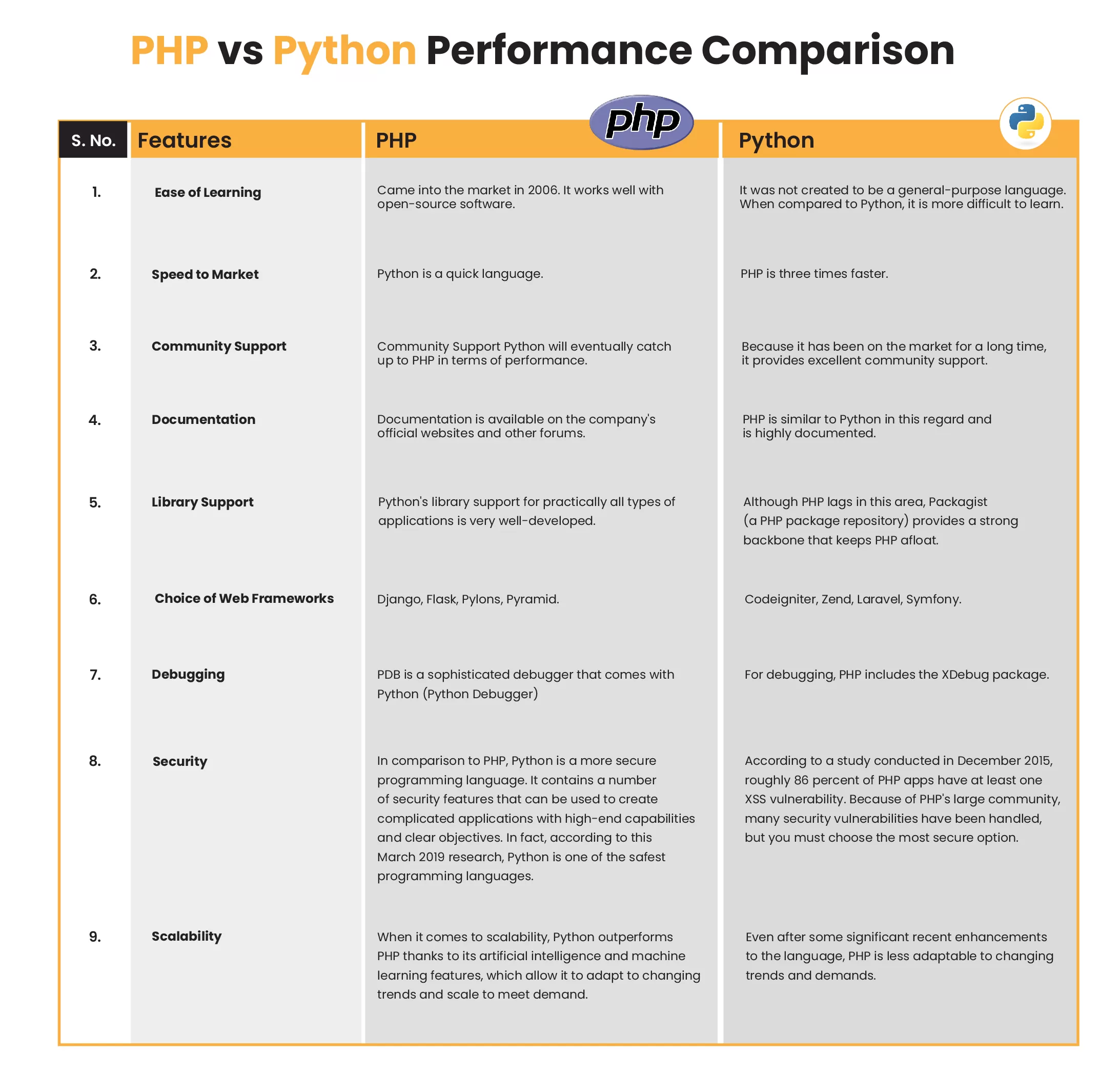Introduction
Coding has become a vital skill in today’s digital age. With technology evolving at a rapid pace, the demand for competent coders continues to grow. Whether you are a tech enthusiast looking to explore a new career path or someone aiming to enhance their problem-solving skills, learning coding can open up a world of opportunities.
But the question that often arises is, how long does it take to learn coding and secure a job? The answer to this question may vary depending on several factors, including the learning method, dedication, and prior experience. In this article, we will explore different paths to learning coding and the timeframes associated with each.
Learning coding can be approached in various ways, ranging from self-study to enrolling in bootcamps or formal college programs. Each method offers a unique learning experience and requires different levels of commitment and time investment.
Self-study is a popular option for individuals looking for flexibility and autonomy in their learning journey. It allows you to learn at your own pace and tailor your curriculum according to your interests and goals. However, self-study requires discipline and self-motivation, as there are no structured timelines or mentors to guide you. While it is difficult to determine an exact timeframe for learning coding through self-study, dedicating a few hours each day consistently can lead to significant progress within a few months.
On the other hand, coding bootcamps offer an intensive and immersive learning experience. These bootcamps are typically short-term programs that focus on equipping students with the necessary coding skills to kickstart their careers. Bootcamps vary in duration, with some lasting a few weeks and others spanning several months. The condensed nature of bootcamps allows for a focused and efficient learning experience. Within a span of 12 to 24 weeks, participants can gain a solid foundation in coding and be ready for job opportunities.
Formal college or university programs provide a comprehensive education in coding, covering a wider range of topics and offering a more in-depth understanding of computer science principles. These programs often require a longer time commitment, ranging from two to four years, depending on the level of specialization. While the duration may be more extended compared to self-study or bootcamps, a degree in computer science can open up a broader range of job prospects and potentially lead to higher starting salaries.
Factors to Consider When Learning Coding
When embarking on the journey of learning coding, there are several factors to consider that can greatly influence your learning experience and the time it takes to master the craft. Understanding these factors can help you make informed decisions and set realistic expectations for your learning journey. Let’s explore some key factors:
- Prior Knowledge and Experience: Your prior knowledge and experience in programming or related fields can play a significant role in how quickly you grasp coding concepts. If you already have a background in mathematics, logic, or problem-solving, you may find it easier to transition into coding. However, even without any prior experience, coding is a skill that can be learned with consistent effort and practice.
- Learning Method: The method you choose to learn coding can impact the time it takes to become proficient. Self-study allows for flexibility but requires discipline and self-motivation. Bootcamps provide an intensive learning experience, while formal college programs offer a comprehensive education in coding. Consider your learning style and preferences when selecting a method.
- Dedication and Consistency: Consistency is key when it comes to learning coding. Devote regular time to practice and commit to a learning schedule. Consistent practice helps reinforce concepts and build problem-solving skills. Dedicate time each day or week to coding, even if it’s just a few hours. Gradually increase the duration and complexity of your coding projects as you progress.
- Resources and Support: Having access to quality learning resources and support can greatly enhance your learning journey. Utilize online tutorials, coding websites, and interactive coding platforms to supplement your learning. Engage with coding communities and join forums where you can connect with fellow learners and seek guidance. Consider seeking mentorship or enrolling in coding programs that offer support and guidance throughout your learning process.
- Project-Based Learning: Engaging in project-based learning can significantly accelerate your coding skills. Instead of solely focusing on theoretical concepts, work on real-world projects that challenge you to apply what you’ve learned. Building projects helps you understand the practical aspects of coding, improves problem-solving abilities, and boosts your portfolio for potential job opportunities.
- Complexity of the Programming Language: Different programming languages have varying levels of complexity. Some languages, like HTML and CSS, are considered relatively easier to learn, while others like Python or Java may require more time and effort. Consider your goals and preferences when selecting the programming language to learn.
Keep in mind that learning coding is a continuous process, and it’s essential to stay updated with new technologies and industry trends. Regularly challenging yourself with new projects and continuously expanding your knowledge will help you stay relevant in the ever-evolving world of coding.
Learning Coding Through Self-Study
Self-study is a popular approach for individuals looking to learn coding at their own pace and with flexibility. While it requires self-discipline and motivation, it offers a sense of autonomy in choosing what to learn and when to learn it. Here are some key points to consider when embarking on a self-study coding journey:
- Curating Your Learning Path: Self-study allows you to tailor your learning path based on your interests and goals. You have the freedom to select the programming languages, frameworks, and topics you want to explore. Utilize online resources, tutorials, and textbooks to guide your learning process.
- Setting Realistic Goals: Define realistic goals and establish a timeline for achieving them. Break down your learning objectives into manageable chunks and set specific milestones. This will help you stay focused and motivated throughout your self-study journey.
- Online Learning Materials: There is a wealth of online learning materials available for self-study. Websites, coding platforms, and video tutorials provide comprehensive resources to learn coding from scratch or deepen your existing knowledge. Take advantage of interactive coding exercises and challenges to practice what you’ve learned.
- Practice and Hands-on Experience: Coding is a skill that requires practice. Apply the concepts you learn by working on coding exercises, small projects, or even contributing to open-source projects. Building a portfolio of coding projects showcases your skills and helps in showcasing your work to potential employers.
- Seeking Community Support: Engage with coding communities and online forums to connect with fellow learners and experienced developers. Participate in coding competitions, hackathons, and code review sessions to receive feedback on your work. Collaborating with others can provide valuable insights and help you grow as a coder.
- Staying Motivated: Self-study can be challenging, especially without external deadlines or mentors. Motivate yourself by setting short-term goals, rewarding milestones, and celebrating your achievements along the way. Join coding communities or find a study buddy who can hold you accountable and provide support.
While self-study offers flexibility and autonomy, it’s important to stay disciplined and consistent in your learning routine. Dedicate regular time to practice coding, be curious, and embrace the challenges that come with learning. Remember, coding is a journey of continuous learning, and self-study can be an effective way to develop your coding skills and embark on a successful career in the field.
Duration for Learning Coding through Bootcamps
Coding bootcamps have gained popularity as a fast-track option for learning coding and entering the tech industry. These intensive and immersive programs are designed to equip students with the necessary skills to launch their careers. The duration of coding bootcamps can vary depending on the program and the level of depth it covers. Here are some key points to consider regarding the duration of bootcamps:
- Short-Term Intensive Programs: Coding bootcamps are known for their accelerated learning model. While traditional computer science degrees can take several years to complete, bootcamps condense the curriculum into a shorter timeframe. Most bootcamps span from 8 to 24 weeks, with full-time programs typically lasting around 12 to 16 weeks.
- Full-Time vs. Part-Time: Bootcamps offer both full-time and part-time programs to cater to different schedules and commitments. Full-time programs require a dedicated commitment, with students immersing themselves in coding for several hours each day. Part-time programs usually take place in the evenings or on weekends, allowing students to learn coding while still working or attending other obligations. The duration of part-time bootcamps can range from a few months to a year.
- Intensive Learning Environment: Bootcamps provide an intense learning environment, with students focusing solely on coding during the program duration. The immersive nature of bootcamps allows for a deep dive into coding concepts, hands-on projects, and real-world applications. The condensed period fosters a fast-paced learning experience with a strong emphasis on practical skills.
- Structured Curriculum: Bootcamps follow a structured curriculum that is designed to cover the core coding concepts and technologies in demand in the industry. The curriculum is typically updated regularly to align with the latest trends and technologies. Through a combination of lectures, coding exercises, and projects, bootcamps aim to provide a comprehensive foundation in coding within a relatively short timeframe.
- Post-Bootcamp Support: Many bootcamps offer post-bootcamp career support, including job placement assistance, networking events, and access to alumni networks. While the duration of the bootcamp itself may be short, these post-bootcamp resources and support can be invaluable in helping students secure job opportunities in the coding industry.
It’s important to note that the duration of a bootcamp is just the beginning of your coding journey. Mastery of coding requires continuous learning and practice even after completing a bootcamp. However, bootcamps provide a solid foundation and the necessary skills to kickstart a career in coding within a relatively short period of time.
Learning Coding through College or University Programs
College or university programs offer a comprehensive and structured approach to learning coding, providing a deeper understanding of computer science principles. While they require a longer time commitment compared to self-study or bootcamps, these programs offer in-depth education and a broader range of job prospects. Here are some key points to consider when learning coding through college or university programs:
- Duration of Programs: College or university programs for learning coding can vary in duration based on the level of specialization and the type of degree. Associate’s degree programs typically last about two years, while bachelor’s degree programs generally span four years. Master’s degree programs can take an additional one to two years to complete.
- Comprehensive Curriculum: College or university programs cover a wide range of coding topics, including algorithms, data structures, software development, web development, and more. The curriculum is designed to provide students with a strong foundation in computer science principles and prepare them for various roles in the coding industry.
- Theoretical and Practical Learning: College programs strike a balance between theoretical knowledge and practical application. Students not only learn coding languages and technologies but also gain a deeper understanding of the underlying concepts and theories behind them. The coursework includes assignments, projects, and laboratory exercises to reinforce theoretical concepts.
- Access to Experienced Faculty: College or university programs offer the opportunity to learn from experienced faculty members who have a wealth of knowledge and industry experience. In addition to classroom instruction, students can seek guidance and mentorship from professors, allowing for a more interactive and personalized learning experience.
- Collaborative Learning Environment: College programs facilitate collaboration and networking among students. Group projects, coding competitions, and workshops provide opportunities for teamwork and skill development. Interacting with peers who share the same passion for coding can foster a supportive learning community.
- Internship and Job Placement Opportunities: Many college or university programs provide internship or co-op opportunities, allowing students to gain valuable hands-on experience in real-world coding environments. Career services departments often assist students in finding internships and job placements in the industry. These opportunities can enhance practical skills and increase job prospects upon graduation.
Choosing a college or university program for learning coding provides a comprehensive education and can lead to a wider range of job opportunities. However, it’s important to note that the duration of these programs is longer compared to other learning options. Consider your career goals, learning preferences, and financial factors when deciding to pursue a college or university program in coding.
Skills Required to Get a Job in Coding
The field of coding requires a diverse skill set to succeed and secure job opportunities in the industry. While specific skills may vary depending on the job role and industry sector, there are several foundational skills that are highly sought after. Here are some key skills required to get a job in coding:
- Programming Languages: Proficiency in programming languages is essential for a career in coding. Common programming languages like Python, Java, JavaScript, C++, and Ruby are highly valuable. Familiarity with multiple programming languages demonstrates adaptability and versatility.
- Problem-Solving: Coding involves solving complex problems and finding efficient solutions. Strong problem-solving skills, logical thinking, and attention to detail are crucial. The ability to analyze problems, break them down into smaller components, and devise effective solutions is highly valued by employers.
- Algorithm and Data Structures: Understanding algorithms and data structures is fundamental to efficient coding. Knowledge of algorithms allows for efficient problem-solving, and understanding data structures helps optimize memory usage and data manipulation. Proficiency in commonly used algorithms and data structures is a valuable asset.
- Web Development: Proficiency in web development is in high demand, given the prevalence of the online world. Knowledge of HTML, CSS, and JavaScript is essential for front-end development, while familiarity with back-end development frameworks and databases such as Django, Ruby on Rails, and MySQL is also beneficial.
- Version Control: Proficiency in version control systems such as Git is crucial in collaborative coding environments. Version control allows for efficient collaboration, code management, and tracking changes. Understanding branching, merging, and resolving conflicts is essential for effective team coding.
- Debugging and Testing: Debugging and testing skills are vital for identifying and rectifying code errors. Knowledge of debugging tools and techniques allows for efficient troubleshooting and error resolution. Writing and implementing test cases to ensure code functionality and reliability is also important.
- Continuous Learning: The field of coding is ever-evolving, so a willingness to embrace continuous learning is crucial. Employers value individuals who stay updated with new technologies, frameworks, and industry trends. Demonstrating a passion for learning and adopting new skills shows adaptability and a drive to excel.
- Communication and Collaboration: Effective communication and collaboration skills are essential in a coding environment. The ability to communicate technical concepts clearly, collaborate with team members, and work well in a team setting is highly valued. Additionally, strong documentation skills contribute to efficient code maintenance and knowledge sharing.
While technical skills are vital, it’s important to note that employers also value soft skills, such as time management, problem-solving mindset, adaptability, and teamwork. These skills contribute to a well-rounded professional and enhance productivity in a coding environment.
Keep in mind that the specific skills required may vary depending on the job role and industry sector. Researching the job market and understanding the specific skill demands for your desired coding role can help you tailor your learning journey and increase your chances of securing a job in coding.
Job Prospects in the Coding Industry
The job prospects in the coding industry are highly promising, with a continuous demand for skilled coders in various sectors. As technology continues to advance and digitization becomes increasingly prevalent, opportunities in the coding field are abundant. Here are some key points highlighting the job prospects in the coding industry:
- High Demand for Coders: The demand for skilled coders is consistently high across industries. From small startups to large corporations, organizations of all sizes require coding expertise to develop and maintain their digital platforms and applications. The increasing reliance on technology and the growing need for software solutions contribute to a favorable job market for coders.
- Varied Industry Sectors: The coding industry offers diverse opportunities in various sectors. These include software development, web development, mobile app development, e-commerce, artificial intelligence, data analysis, cybersecurity, and more. Coders can find employment in industries ranging from finance and healthcare to entertainment and transportation.
- Flexible Work Arrangements: Coders often enjoy flexible work arrangements, including remote work options, freelancing, and contract work. The nature of coding allows for remote collaboration, making it possible to work with clients or teams located anywhere in the world. This flexibility provides opportunities for work-life balance and the potential to work on exciting projects from different locations.
- Entrepreneurial Opportunities: Coding skills can empower individuals to pursue entrepreneurial ventures. With the ability to turn ideas into functional applications or software solutions, coders can start their own tech startups or freelance businesses. This entrepreneurial aspect of coding offers the potential for innovation, creativity, and the ability to shape the future of the tech industry.
- Competitive Salaries: The coding industry offers competitive salaries due to the high demand for skilled professionals. Salaries can vary depending on factors such as experience, location, job role, and industry sector. As coders gain experience and expertise, their earning potential tends to increase, making it an attractive field in terms of financial stability and growth.
- Continued Career Growth: The coding industry offers ample opportunities for career growth and advancement. As coders gain experience, they can progress to more senior roles, such as software architect, technical lead, or project manager. Additionally, acquiring specialized skills or certifications in areas like data science, cybersecurity, or machine learning can open doors to higher-level positions and expanded job opportunities.
It’s important to stay updated with the latest trends and technologies in the coding industry to remain competitive in the job market. Continuous learning, skill enhancement, and staying connected with coding communities and networks can help expand job prospects and advance your career within the coding industry.
Timeframe for Securing a Job in Coding
The timeframe for securing a job in coding can vary based on several factors such as prior experience, skill level, and the prevailing job market conditions. While there is no specific timeline that applies to everyone, here are some considerations regarding the timeframe for securing a job in coding:
- Prior Experience: Prior experience in coding or related fields can significantly impact the time it takes to secure a job. Individuals with relevant experience may have an advantage in the job market, as they already possess a portfolio of coding projects or a track record of professional accomplishments. This experience can expedite the job search process.
- Education and Training: The level of education and training also plays a role in securing a job in coding. Completing a coding bootcamp or obtaining a degree in computer science can provide a solid foundation and the necessary credentials to attract potential employers. The duration of the educational program should be taken into account when assessing the timeframe for job readiness.
- Skill Level and Mastery: The level of skill and mastery in coding is crucial in securing a job. Employers often seek candidates who demonstrate proficiency in programming languages, problem-solving abilities, and practical experience. The timeframe for job readiness depends on the time invested in learning and practicing coding, as well as the complexity of the desired job role.
- Job Market and Industry Demand: The job market and industry demand can influence the timeframe for securing a job in coding. In areas where there is a high demand for coders, job opportunities may be more readily available, resulting in a shorter job search. Conversely, in competitive job markets or during economic downturns, the job search process may take longer.
- Job Search Strategies: The effectiveness of job search strategies can impact the timeframe for securing a job in coding. Networking, attending industry events, utilizing online job platforms, and connecting with coding communities can enhance job prospects and potentially expedite the job search process. Taking a proactive approach and leveraging these strategies can lead to more job opportunities.
- Personal Circumstances: Individual circumstances, such as geographical location and personal commitments, can also influence the timeframe for securing a job. Job markets and opportunities may vary based on location, and personal commitments may impact the availability of time for job searching and interviewing. Assessing personal circumstances can help set realistic expectations for the job search timeline.
It’s important to keep in mind that securing a job in coding is a process that requires patience, perseverance, and a proactive mindset. While some individuals may find job opportunities relatively quickly, others may encounter a longer job search journey. Continuous learning, staying updated with industry trends, and actively seeking opportunities can help expedite the job search process and increase the chances of securing a rewarding job in coding.
Conclusion
Learning coding and securing a job in the coding industry is an exciting and rewarding journey. The duration and path to achieve this goal may vary based on individual factors such as learning method, prior experience, and personal circumstances. Whether you choose self-study, bootcamps, or formal education programs, each learning path offers its own advantages and timeframes.
Self-study provides flexibility and autonomy but requires self-discipline and consistency. Bootcamps offer intensive and immersive learning experiences within a relatively short timeframe. College or university programs provide comprehensive education and a wider range of job prospects, albeit with a longer commitment. Assessing your goals, preferences, and resources will help you choose the most suitable learning path.
Key skills required to secure a job in coding include programming languages, problem-solving, algorithm and data structures, web development, version control, debugging, and continuous learning. These technical skills, combined with effective communication, collaboration, and adaptability, contribute to a well-rounded coder capable of thriving in the industry.
The job prospects in the coding industry are flourishing, with a continuous demand for skilled coders across various sectors. The abundance of opportunities, competitive salaries, and potential for career growth make the coding industry an attractive field for professionals. Additionally, the flexibility of work arrangements and entrepreneurial opportunities provide further avenues for success.
While the timeframe for securing a job in coding may vary, factors such as prior experience, education, skill level, and the job market conditions play a significant role. Setting realistic expectations, continuously learning and improving, utilizing effective job search strategies, and adapting to evolving industry trends can expedite the process of securing a job in coding.
Embarking on a career in coding not only opens up numerous job opportunities but also allows for personal growth, creativity, and the ability to contribute to technological advancements. Regardless of the learning path or duration, a passion for coding and a dedication to continuous improvement will pave the way to a successful and fulfilling career in the coding industry.

























